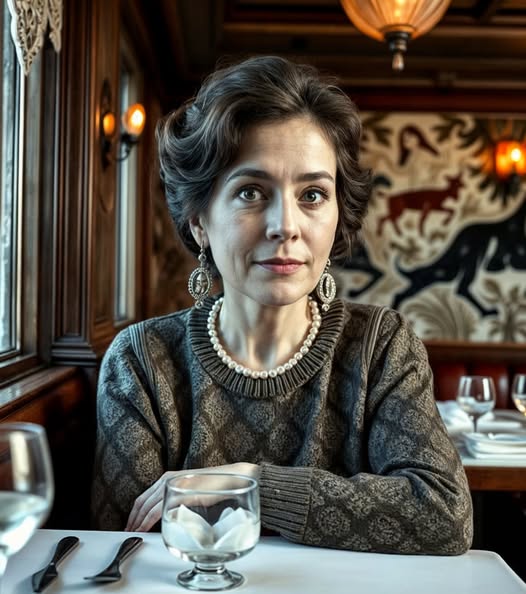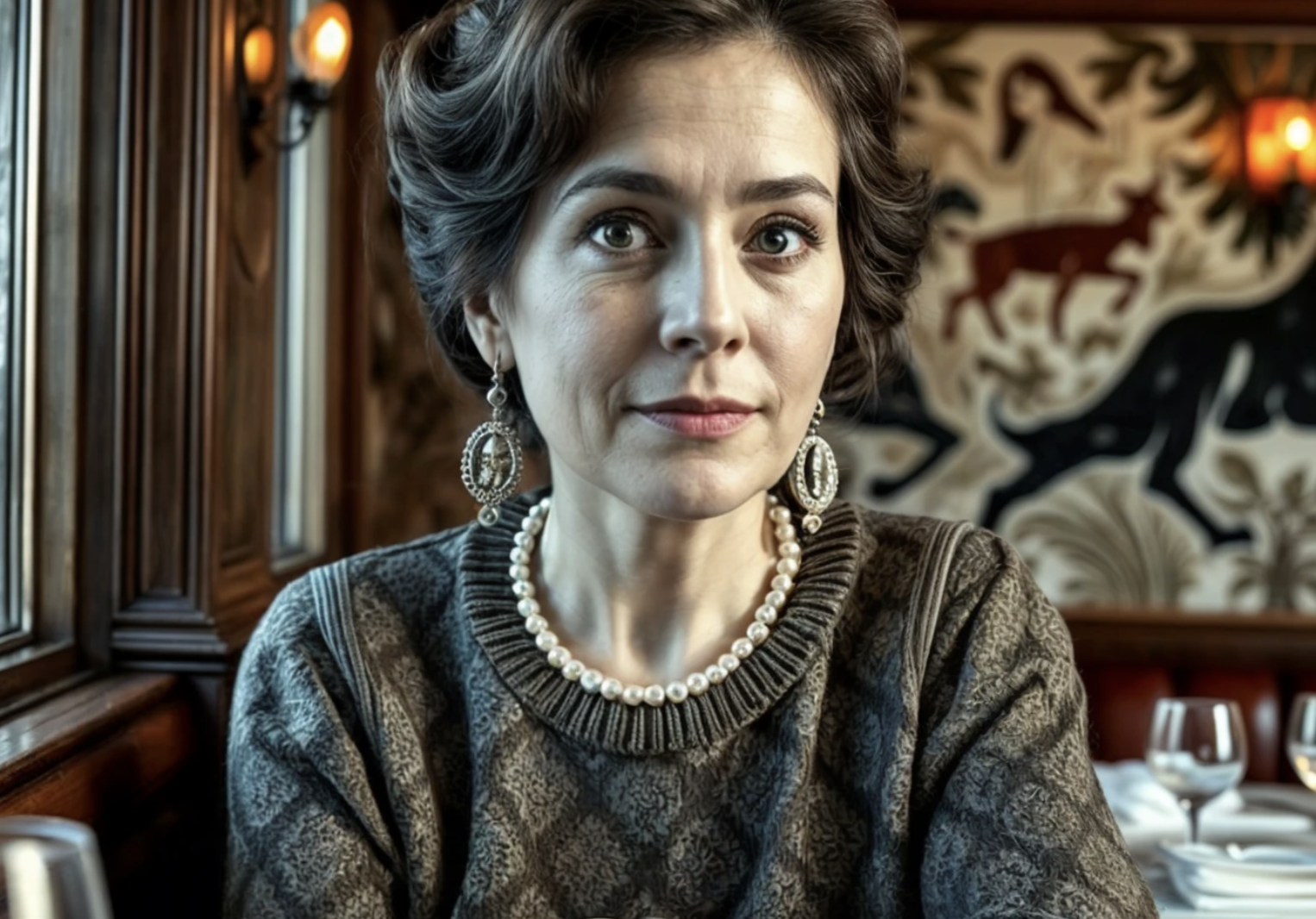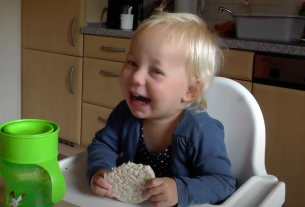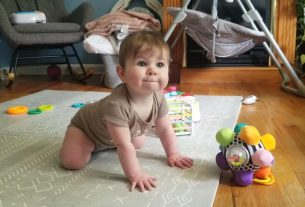Don’t take another step into that restaurant, understand?” she hissed through clenched teeth, her sharp nails digging into the granite surface of the bar.
“Of course, Ekaterina Pavlovna. As you command,” I replied, displaying a calm smile, though inside, the warmth of impending triumph was already spreading.
The “White Swan” restaurant was once the pride of the city’s main boulevard. Now, its grandeur existed only in memories: marble columns and crystal chandeliers casting dim reflections on the half-empty hall, where waiters moved like ghosts, trying to avoid the owner’s piercing gaze. The few visitors whispered among themselves, as if afraid to disturb the oppressive silence.
I leisurely headed to the car parked around the corner, where Artem was waiting for me. My heels rhythmically tapped on the cobblestone, counting down the seconds until I could indulge in relaxed laughter.
“So, still as unbearable?” he asked, opening the car door for me.
“Absolutely. Only now her kingdom is crumbling right under her nose,” I said, settling into the passenger seat.
Three years ago, I sat in the kitchen of our house, struggling with a cold dinner. My father and Ekaterina had finished their meal long ago and moved to the living room, where her artificial laughter mixed with the sounds of the television.
“Anna, why didn’t you clean up after yourself yesterday?” her voice suddenly sounded close.
“I did,” I countered, lifting my eyes from the plate. “I washed the dishes and wiped the table.”
“Then what is this?” She pointed at a barely noticeable spot on the tablecloth.
“Ekaterina… maybe enough?” a tired voice came from the living room.
“No! A daughter must understand what it means to respect someone else’s labor. I do not intend to live like a maid!”
My fists clenched under the table. At twenty-two, I continued to endure these remarks, as if I were a little girl. And father… He simply preferred to return to his TV show.
“Prepare the documents,” I said, handing Artem the USB drive. “It’s time to show her who really owns this place.”
“Are you sure?” He looked at me intently. “We could wait a bit longer, until she’s completely in a debt pit.”
“No,” I shook my head. “I want to see her reaction now, when she believes she’s still in control.”
Artem smirked and started the engine. The car smoothly pulled away, leaving behind the restaurant with its faded sign. Ekaterina had no idea that over the past six months, through front companies, I had bought a controlling stake in her “baby.” She didn’t know that all her attempts to find investors had been thwarted by my interference.
The moment for the final chord had arrived. And I intended to enjoy every detail of this performance.
“Ekaterina Pavlovna, there… this…” Lisa nervously fidgeted with a folder of financial statements, shifting from foot to foot at the doorway of her office.
“What ‘this’?” Ekaterina responded irritably, not looking up from her laptop screen. “I don’t have time for riddles.”
“The investor has arrived. The very one you’ve been looking for. He’s waiting in the VIP room.”
Ekaterina froze, slowly closing her laptop. For the last three months, she had been fruitlessly knocking on bank doors and meeting with potential saviors of her business. And now, when the long-awaited buyer of the controlling stake finally appeared, she felt as if she was standing on the edge of a cliff.
“Fine,” she carefully ran her fingers through her perfectly styled hair. “Bring coffee there and tell the chef to prepare the best appetizers from our menu.”
Her heels distinctly clicked across the empty hall, where there would usually be bustle at lunchtime. “White Swan” continued its slow decline—Ekaterina understood this, although she never allowed herself to admit it even in her thoughts. Young restaurants with innovative concepts and avant-garde chefs were attracting more customers, and her old connections were crumbling one by one.
The VIP room welcomed her with soft dimness and barely audible classical music. At a table by the window sat a familiar figure, and for a moment, Ekaterina thought her vision was betraying her.
“You?” the words escaped before she could restrain them.
Anna turned slowly, her smile sharper than a razor.
“Please, have a seat, Ekaterina Pavlovna,” she said in a soft, yet steel voice. “We have much to discuss.”
“Is this some kind of stupid joke?” Ekaterina froze, gripping the back of the chair. “You can’t be…”
“The investor?” Anna pulled out a thick stack of documents from a leather folder. “Sit down. You really should.”
Ekaterina’s knees trembled as she sat down. Impossible. Simply impossible. The girl she had ruthlessly kicked out of the house three years ago was now sitting in front of her in an elegant Chanel suit, with the smile of a predator.
“Fifty-one percent of the business,” Anna slid the documents across the table. “Of course, through an entire network of companies. I wouldn’t want to deprive you of the pleasure of surprise.”
Lisa appeared silently with a coffee pot, but Ekaterina waved her away with a sharp gesture:
“Get out!”
“There’s no need to take out your dissatisfaction on the staff,” Anna noted calmly. “By the way, about the staff. You’ve delayed last month’s wages. And suppliers have already begun to inquire about your financial report for the last quarter.”
“Were you watching me?” Ekaterina’s face turned pale with anger.
“I was just carefully studying my investment,” Anna replied, sipping her coffee. “And I must say, the picture is quite bleak: high staff turnover, declining revenues, problems with the health inspection… I could go on forever.”
Ekaterina laughed hysterically:
“And now what? Decided to take revenge? Destroy what I’ve worked on for years?”
“On the contrary,” Anna’s smile widened. “I want to save the restaurant. But on my terms.”
She pulled out a new document:
“A new management contract. With all the duties and limitations. No more demeaning employees. No more fiddling with the reports. And no personal expenses at the restaurant’s expense.”
“And if I refuse?” Ekaterina looked at her defiantly.
“Then I’ll take my money back. And we’ll see how long ‘White Swan’ lasts without financial support. A month? Or less?”
The room was filled with oppressive silence. Rain began outside, the drops slowly sliding down the glass like tears.
“You know,” Ekaterina suddenly said, looking out the window, “I always knew you would get back at me. But I never imagined it would be… like this.”
“This isn’t revenge,” Anna shook her head. “This is business. I’m giving you an opportunity to fix the situation. To start with a clean slate.”
“Under your control?”
“Under our partnership.”
Ekaterina was silent for a long time. Outside, the rain intensified, washing the dirt from the city roofs. Finally, she reached for the documents:
“Where do I sign?”
“Here,” Anna handed her a pen. “And here. Also on the third page.”
Once the papers were signed, Ekaterina stood up:
“What now?”
“Now we work together,” Anna also stood up. “Tomorrow at ten, there’s a staff meeting. Don’t be late… partner.”
At the exit, she paused:
“And yes, Ekaterina Pavlovna… Don’t try to kick me out of this restaurant again.”
Left alone, Ekaterina filled a cup of coffee with trembling hands. She couldn’t decide what she felt more—fear or relief. But for the first time in many months, she was certain of one thing: “White Swan” would not disappear. Not today, at least.
In another part of the city, Anna sat in Artem’s office, watching the night city through a panoramic window. His silhouette was illuminated by the reflections of a million lights, and the dark red wine in their glasses seemed to reflect the depth of the events they had just experienced.
“How did it go?” he asked quietly, handing her a glass.
Anna took the wine, but didn’t hurry to drink. She twirled the stem between her fingers, watching as the dark liquid left thin trails on the glass.
“You know,” she finally began, “I imagined this moment hundreds of times. I thought I’d feel… I don’t know, triumph? Satisfaction?” She smiled joylessly. “Instead, I just saw a frightened woman clinging to her last straw.”
“Isn’t that what you wanted?”
“Probably,” she replied, taking a small sip. “But when her hands trembled over the documents… it reminded me of my mother, when she was ill. For a moment, I even wanted to…” Anna shook her head sharply, as if to dispel the thoughts. “Never mind. What’s next?”
“Next is the hardest part,” she continued, spinning the glass. “Turn her into a person who knows how to work honestly. Show that business can be conducted without manipulation and deceit. It’s going to be… an interesting process.”
“For whom more interesting—for her or for you?”
“For both of us,” Anna said, checking the time on her watch. “Tomorrow’s the first meeting. Need to prepare the financial plan.”
“Are you sure you can handle it? Working with someone who made your life hell…”
“I’m no longer that scared girl, Artem,” she said, setting down her glass. “And she’s no longer the all-powerful stepmother. Now we’re just partners. Nothing personal.”
But they both knew—it was a lie. Everything was personal. And it always would be.
In a week, “White Swan” had transformed beyond recognition. Live flowers appeared in the hall, the music softened, and the staff no longer flinched at every sound. Ekaterina forced smiles and tried to speak calmly, though everyone noticed how she clenched her teeth upon seeing Anna.
“Revenue has increased by fifteen percent,” Lisa reported at the morning meeting. “And three corporate orders for next month.”
Ekaterina silently stared at her cooling coffee. She remembered how a month ago she had yelled at Lisa for much better performance. Now, she had to silently watch as her former stepdaughter turned chaos into order.
“Excellent,” Anna said, reviewing the reports. “Starting next week, we’re raising the waiters’ salaries. And we’ll add bonuses for positive reviews.”
“That’s unnecessary,” Ekaterina blurted out. “They already…”
“They already work beyond their limits,” Anna interrupted. “And they deserve fair pay.”
Ekaterina hastily gathered her papers, avoiding the glances of those around her. The meeting drained her—each polite smile, each controlled tone, came with great difficulty. She was almost at her office door when she heard the familiar click of heels. That sound now sent a chill over her skin.
She pretended to be busy with her keys, deliberately fumbling with the lock. Perhaps if she didn’t turn around, everything would pass on its own…
“Ekaterina Pavlovna.”
The voice was unexpectedly gentle. Ekaterina turned around. Anna stood there, adjusting her jacket cuff, and something almost human flickered in her flawless appearance.
“Let’s have coffee,” she suggested simply. “And talk. Without masks.”
Ekaterina froze. It was this simple humanity that frightened her more than any threats.
“About what?” she asked tiredly, sinking into a chair. “You’ve already decided everything for me.”
“Not everything,” Anna replied, sitting opposite. “I want to understand.”
“Understand what?”
“Why did you hate me so much? What did I do to you?”
Ekaterina froze. This question had haunted her for years, but she never allowed herself to answer it honestly.
“Do you really want to know?” her voice trembled. “Fine. I’ll tell.”
She approached the window:
“Have you ever worked as a waitress, Anna? Can you imagine what it’s like—to smile for hours at people who look right through you?”
Anna was silent, and Ekaterina continued:
“For ten years, I served food to girls like you. Girls from wealthy families who got everything just because they were born into the right families. I smiled when they complained about cold coffee, apologized when they dropped their thousand-dollar bags…”
Ekaterina sharply turned to Anna:
“And then I met your father. And I thought—here it is, my chance. Finally, I’ll be on the other side of the barricades. I’ll be the one waiters smile at.”
“And then I came along,” Anna added quietly.
“Exactly!” Ekaterina almost shouted. “You! A copy of your mother in everything: just as refined, educated, with those manners and knowledge of French. My new husband loved you more than me, and it drove me insane.”
She sank back into the chair, as if drained of strength:
“I thought if you disappeared, he would finally love me the way I wanted. But instead, he just… stopped smiling.”
A heavy silence filled the office. Anna stood by the window, looking at the bare branches of a maple tree swaying against the gray autumn sky. In the distance, someone laughed, and cars honked below, but their world remained closed.
“Funny, isn’t it?” Anna ran her finger along the fogged-up glass, leaving a light trail. “When I left home, I had three hundred rubles in my pocket and a backpack with things. Do you know where I lived at first?”
Ekaterina remained silent, but her gaze was fixed on Anna’s back.
“In a hostel on the outskirts of the city. Six people in a room, a shared kitchen with cockroaches. I worked at a 24-hour coffee shop,” she bitterly smiled. “Four days on, two off, double shifts on holidays. I remember breaking a whole tray of cups on my first day. I was afraid they would fire me.”
She turned around. Ekaterina sat, gripping the armrests of her chair until her knuckles whitened.
“But they didn’t fire me,” Anna continued more gently. “They taught me to work. How to properly hold trays, how to interact with customers. How to smile, even when everything inside you is cracking.”
She took a worn folder from her bag:
“There was a girl, Marina. A manager. One day she caught me in the storeroom after a particularly hard shift. Saw me crying, and do you know what she did?”
Ekaterina slowly shook her head.
“She poured me a cup of coffee and said, ‘Now let’s think about how you can get out of this.’ We sat all night, drafting my first business plan,” Anna placed the folder on the table. “Then Artem appeared, and everything took off. But I’ll never forget that night. Sure, I could have taken my father’s money, lived beautifully further, but I had to do it all myself. He chose his new life, and we hardly talk for many years.”
She opened the folder, showing sketches, charts, and calculations for reviving “White Swan.”
“I don’t want to take the restaurant from you,” Anna began, sitting on the edge of the table. “I want it to be a place worth visiting again. Where waiters smile genuinely, and chefs are proud of their dishes. Where…,” she hesitated, searching for words, “where we can both start with a clean slate.”
“My experience?” Ekaterina bitterly smiled. “In what? In how to intimidate people?”
“In understanding kitchen work, in contacts with suppliers, in thousands of details you know better than me. Just let’s try to do it differently.”
She extended her hand:
“Partners?”
Ekaterina stared at the outstretched hand for a long time, then slowly shook it:
“Partners.”
A month later, “White Swan” had transformed beyond recognition. New lighting revived the interior, and the updated menu attracted more and more visitors. Ekaterina sometimes still snapped at people, but she quickly composed herself and apologized.
“How’s your stepmother?” Artem asked when he and Anna dined elsewhere.
“Strange,” she mused, swirling her wine glass. “I came for revenge. Wanted to see her break. And now…”
“What now?”
“Now I see myself in her. The scared little girl I once was. She just wanted to be loved.”
Artem looked at her attentively:
“And what are you going to do?”
“What no one did for me,” Anna replied with a light smile. “Give her a chance to be better.”
That evening, passing by “White Swan,” she noticed Ekaterina through the window. She sat at a table with an elderly couple, genuinely smiling and chatting. In that smile, there was neither falseness nor malice.
Anna walked on, feeling a strange calm. Revenge is a dish often cooked too long. But sometimes it’s better just to let it remain unbaked.
“Mom, where’s the cake?” a child’s voice rang from the kitchen.
“Just a moment, dear. Let Auntie Kate decorate it,” Anna watched as Ekaterina meticulously created patterns with cream on the surface of the cake.
It had been ten years since Anna had bought the controlling share of “White Swan” and turned revenge into an unexpected partnership. Now they had a chain of five restaurants, but that no longer seemed the main thing.
Little Marina fidgeted at the table. Ekaterina winked at her and added the final touch—a sugar butterfly on top.
“Ready,” she straightened up, stretching her stiff back. “Do you think Dad will like it?”
Anna paused, hearing those words. Even after ten years, any mention of her father stirred mixed feelings. He had tried to contact her initially, but she ignored the calls. Then he just stopped calling.
“Are you okay?” Ekaterina asked quietly, as if afraid to disrupt the fragile balance.
It was amazing to realize how much this woman had learned to understand her. The very stepmother who once made her life hell was now… what? A partner? A friend? Part of the family?
“Yes, just…” Anna shook her head. “He called yesterday.”
Ekaterina cautiously put down the pastry bag:
“And what did he say?”
“He wants to meet. Says he’s sick.”
Marina, sitting on a high kitchen stool and swinging her legs, froze. She looked attentively first at her mother, then at Auntie Kate, then picked up her worn plush rabbit and silently slid off the stool. Seven-year-olds always know when adults need to talk alone.
“Will you answer?” Ekaterina asked, trying to be as delicate as possible.
“I don’t know,” Anna ran her hand over the cool surface of the table. “And you… do you stay in touch with him?”
Ekaterina turned to the window:
“Sometimes. We divorced five years ago, remember. But he calls every few months. Asks about you.”
Anna bitterly smiled:
“Funny. He never cared about me before.”
“People change,” Ekaterina said so softly that Anna barely heard. “We’re an example of that, right?”
Outside, rain drummed on a tin awning, and the kitchen smelled sweetly of underbaked cake. From the children’s room came Marina’s muffled voice: “No, princesses don’t sit like that!” Anna absently ran her hand over the table, as if gathering non-existent crumbs.
“It’s all so strange,” she almost muttered to herself. “I harbored resentment inside me for so many years, and now… now there’s just emptiness. No strength left even to be angry.”
Ekaterina approached, placing her hand on her shoulder:
“Maybe it’s forgiveness?”
“Perhaps,” Anna covered her hand with hers. “Or fear.”
“Fear?”
“Yes. Fear of seeing not the monster from the past in him, but just… a sick old man.”
At that moment, Marina burst into the kitchen:
“Mom, Dad’s already here! Can I give him my present first?”
Anna smiled, wiping away a sudden tear:
“Of course, sweetheart. Go ahead.”
When the girl ran off, Ekaterina quietly added:

“Whatever you decide… I’m here.”
In those words, there was more warmth and support than in all the letters from her father over the past years.
The hospital corridor was steeped in the smells of antiseptic and old age. Anna sat on a plastic chair, examining her shoes and trying not to think about who was behind the hospital room door—a person she hadn’t seen for ten years.
“Coffee?” Ekaterina handed her a cardboard cup from the machine. “Just warning you, it’s terrible.”
“Like everything here,” Anna accepted the cup but didn’t take a sip. “You know, I was here before when Mom…” She trailed off, not finishing.
Ekaterina sat down next to her:
“I didn’t know how to act then. I was afraid that if I showed even a shred of sympathy, you would take it as hypocrisy.”
“And I thought you just didn’t care at all,” Anna smiled ruefully. “We were both pretty foolish, weren’t we?”
Behind the hospital room door, a sound of a falling object and a nurse’s footsteps could be heard. Anna flinched.
“You don’t have to go in,” Ekaterina said quietly. “We can just leave.”
“No,” Anna shook her head. “Marina asked yesterday why she doesn’t have a grandfather like other kids. I couldn’t answer. Maybe it’s time to stop running.”
She stood up, adjusting invisible creases in her dress—a gesture, an echo of the past, always betrayed her nervousness. Ekaterina remembered how ten years ago, before signing the partnership documents, she similarly straightened her skirt, as if trying to put not only her clothes but also her thoughts in order.
The door to the hospital room opened silently, as if the very space feared breaking the silence. On the hospital bed, entangled in wires and tubes, lay a person Anna barely recognized. Gray hair, sunken cheeks, deep wrinkles—all made him a stranger. She paused at the threshold, unable to step forward.
“Anya?” his voice was hoarse, barely audible. “You came after all.”
She didn’t answer. For so many years, she had imagined this meeting, rehearsed monologues filled with anger and pain. But now, words seemed unnecessary, as if time had already put everything in its place.
“Hello, Dad,” she finally said, feeling a lump rise in her throat.
He tried to sit up, but his body didn’t obey. Anna instinctively stepped forward, still clutching the strap of her bag as if it could keep her from falling into the abyss of old grievances.
“No need, lie down,” she said, approaching. “How are you?”
“Terrible,” he weakly smiled. “Doctors say I have about three months left.”
Ekaterina, standing behind, discreetly squeezed her elbow. It was a gesture of support that Anna didn’t even realize she needed but was so necessary.
“I’ve been thinking a lot,” he continued, struggling to find the words. “About everything. How I ruined everything. Betrayed you when you needed me most.”
“Dad…” she started, but he interrupted.
“No, let me finish. I don’t have much strength left,” he coughed, and Anna handed him a glass of water. “I saw your restaurant. What you and Katya created. How you overcame… all of it. And I just hid. Pretended everything was okay. Though I spat on you back then.”
Ekaterina quietly left the room, leaving them alone. This was their moment, their conversation.
“You know,” Anna sat on the edge of the bed, “I’ve been thinking too. About why you never stood up for me. And you know what’s the funniest thing? Now I understand—you were just afraid. Afraid to be alone, afraid to make tough decisions. Just like me, once.”
She saw tears glisten in his eyes.
“Forgive me, daughter.”
These words, which she had waited so many years to hear, sounded so simple that Anna felt something inside her release.
“Grandpa, look, I drew us all!” Marina burst into the room, waving a sheet of paper. On the child’s drawing, angular strokes depicted little figures holding hands. Each was labeled—mom, Auntie Katya, grandpa, dad.
Oleg carefully took the drawing with trembling hands.
“Beautiful, sunshine,” his voice trembled. “Why is Auntie Katya’s dress blue?”
“Because it’s her favorite color!” the girl explained importantly. “She told me herself.”
Anna, standing in the doorway, caught Ekaterina’s surprised look. She indeed loved blue, but she had never mentioned it. At least, not before.
“Marina, sweetie,” called Ekaterina, “let’s buy grandpa some juice? The kind he likes.”
When they left, Anna sat next to her father.
“She’s attached to you.”
“She’s amazing,” he was still looking at the drawing. “Just as bright as you were at her age. Remember how you used to draw butterflies on all my business papers?”
“I remember,” Anna smiled. “Mom used to scold you for not throwing them away.”
“I kept them. I still do,” he coughed. “In a box in the attic. Along with your school photos and first certificates.”
Anna felt a lump rise in her throat.
“Why? You never showed that they meant anything to you.”
“Because I was a coward,” he took her hand. “I thought if I pretended everything was okay, then it would be. When your mom died, I just… broke down. Ekaterina seemed like a lifebuoy. And then it was too late to change anything.”
Outside, a light autumn rain drizzled. Somewhere in the corridor, Marina’s laughter echoed—she was telling Ekaterina another kindergarten story.
“You know what’s the most amazing thing?” Anna adjusted the blanket on his legs. “When I came to the restaurant ten years ago with a plan for revenge, I thought hatred was forever. And now…”
“Now you’re a real family,” he weakly squeezed her fingers. “More real than we ever were. I see how she looks at Marina. How she cares for you, even when you don’t notice.”
“Remember the day I left home?”
“Every second,” he closed his eyes. “I sat in the office and heard the front door slam. And I didn’t come out. Didn’t stop you.”
“And I waited,” Anna confessed softly. “I stood in the rain, waiting for you to run out after me. Silly, right?”
Ekaterina and Marina returned to the room. The girl was carrying a bag of juice like the greatest treasure.
“Grandpa, we found pomegranate! Your favorite!”
Anna stood up, making room for her daughter. Ekaterina quietly approached her.
“Is everything okay?”
“Yes,” Anna suddenly hugged her. “Thank you.”
“For what?”
“For teaching me to forgive. Myself included.”
Marina was animatedly telling grandpa something, waving her arms. He listened with such attention as if it were the most important conversation of his life. Perhaps it was.
“You know what’s funny?” whispered Ekaterina. “I also wanted revenge. Back in the beginning. Wanted to prove that I deserved to be part of this family. And in the end…”
“In the end, you became it,” Anna finished. “Truly.”
Outside, the rain gradually subsided. Somewhere in the distance, a rainbow flickered—a rarity for late autumn. Marina jumped up to show it to her grandpa, and he, with effort, propped himself up on the pillows.
Anna watched them and thought about the oddities of life. How revenge can turn into forgiveness. How enemies become family. And how the love of a little girl can mend the fragments of broken relationships, turning them into something new, unexpectedly beautiful.
In the end, maybe that’s the real secret to happiness—being able to let go of the past, not forgetting its lessons. Being able to see the good even in those who once caused pain. And being ready to start anew, even if there’s very little time left.



